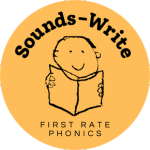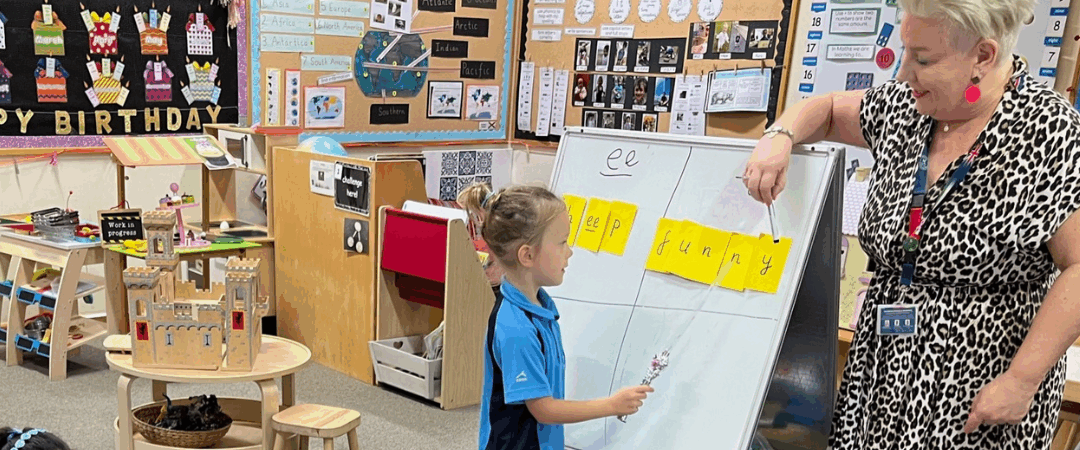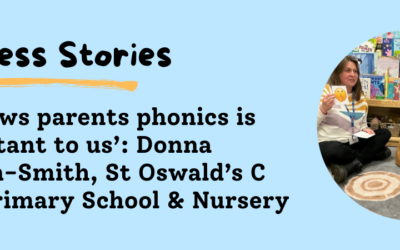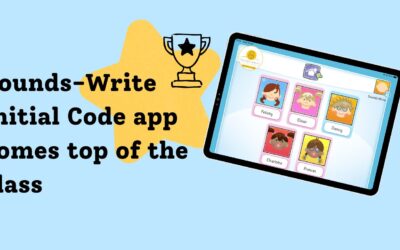We spoke to Jade Linton, Senior Associate – Literacy, at The British School Al Khubairat, a large five-form entry school in Abu Dhabi.
Why did you choose Sounds-Write?
We were looking for a programme that would align with current research in the Science of Reading, as well as support the varying needs of learning in our multicultural and diverse climate. Although we knew we had knowledgeable staff who carried out phonics daily in the Early Years and KS1, we felt that consistency was something we needed to develop. We also felt strongly that phonics teaching doesn’t stop at the end of Year 2, and we wanted something to support this throughout the school.

I was immediately excited about the possibilities and the research-informed practices that Sounds-Write promote
Jade Linton, Senior Associate – Literacy
When did you start implementing Sounds-Write and how did you do that?
After watching the free videos available on the website, I was immediately excited about the possibilities and the research-informed practices that Sounds-Write promote. My team and I met with the Sounds-Write trainer several times to discuss implementing Sounds-Write and how we would do this in a five-form entry school. Her knowledge and advice were invaluable at this point. I completed the course initially to get a better understanding of what the course and programme entailed. We started by training our Year 1 and Reception teachers at the beginning of the year and then trained Year 2 and 3 teachers at the end of the year. This is the first year that all year groups from Reception to Year 3 are teaching Sounds-Write. We plan to slowly build on this in KS2 by training year groups gradually. Our Inclusion department also received training and we are now looking to train our Secondary Inclusion department to ensure consistency of practice across our primary and secondary school. Staff like the predictability of the lessons and can see the high levels of engagement. As a team, we are working on fidelity to the script and the pace of our lessons, to ensure the children stay engaged as the year progresses.
How did you find the training and support provided by Sounds-Write?
The training was rigorous and gave our staff the adequate amount of background knowledge to understand why we were changing our current practice. Our trainer has been wonderful in checking in with us monthly and answering any questions or any misconceptions that we have. She has also been a wonderful support to me when leading Sounds-Write across the school.
What has been the reaction from the children and parents to the adoption of the Sounds-Write programme?
We can see that the children thrive on the routine and predictability of the lessons, and we often find our Reception children playing ‘teachers’ and using letters to carry out their own lessons. Parents like the clear structure and many have completed the free course available. They often tell us that their children will correct them and will use the language we use in class: ‘Say the sounds and read the word’.
What impact has Sounds-Write had on pupil progress?
As we started last year after October half-term in Year 1, we were expecting a dip in our end of year screener. However, we found that instead, there was a 7% increase in the pass rate compared to the previous year.
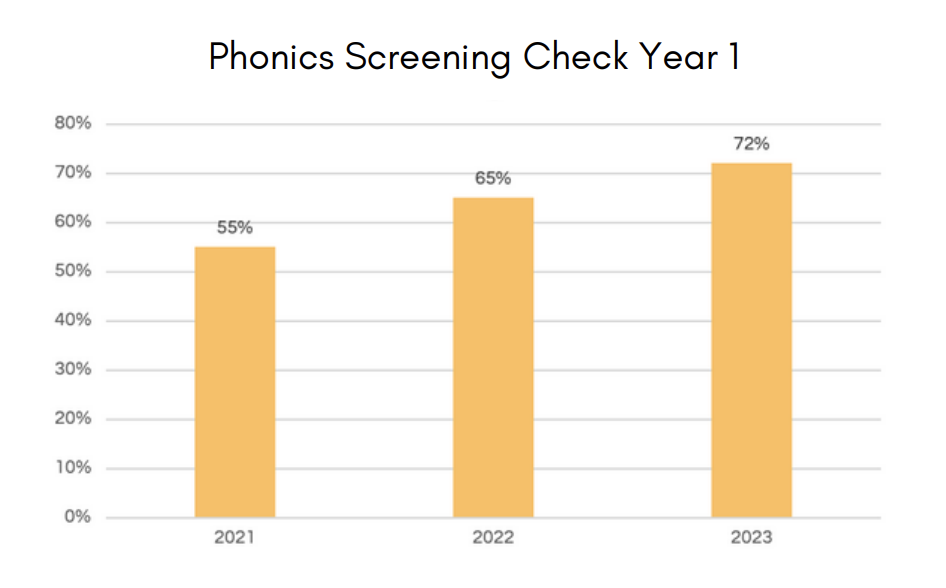
What would you say to other schools about Sounds-Write?
There are lots of phonics programmes out there to choose from, but Sounds-Write offers a clear, structured approach, underpinned by current research. It provides teachers with the training and support to enable them to deliver a high quality, rigorous phonics programme with confidence.
You may also like
Phonics Screening Check – Tips for a Strong Start to the Academic Year (Australia)
Whilst the timing of this blog was prompted by the start of the new academic year in Australia, the guidance will be useful to teachers using a Phonics Screening Check anywhere around the world. In fact, we shared a VERY similar post back in September for the start of...
‘It shows parents phonics is important to us’: Donna Wilson-Smith, St Oswald’s C of E Primary School & Nursery
Donna Wilson-Smith, Headteacher at St Oswald’s Church of England Primary School and Nursery and a former Sounds-Write Literacy Specialist, shares with us how they have been using Sounds-Write in the nursery to get children ready to start their literacy journey.Tell us...
Sounds-Write Initial Code app comes top of the class
With more than 9,000 apps marketed as supporting early reading development, parents and educators find it almost impossible to choose truly effective apps for reading instruction. The authors of the study conclude that despite widespread use, most literacy apps do not...
Discover Sounds-Write
Book a free consultation to discuss your individual training needs.
